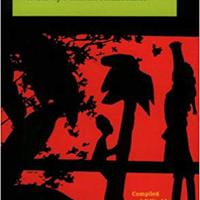African Fundamentalism: A Literary and Cultural Anthology of Garvey's Harlem Renaissance
Item
-
Title
-
African Fundamentalism: A Literary and Cultural Anthology of Garvey's Harlem Renaissance
-
This edition
-
"African Fundamentalism: A Literary and Cultural Anthology of Garvey's Harlem Renaissance". Ed. Tony Martin. Dover, MA: Majority Press, 1991. xviii+363 pp.
-
About the anthology
-
"Most of the selections in this volume are excerpts from Negro World" (WorldCat).
-
Publisher's description
-
"The real roots of the Harlem Renaissance lie in the Garvey Movement. Zora Neale Hurston, Alain Locke and Claude McKay all published in Garvey's Negro World before the "mainstream" Renaissance got going. Afro-America's first book reviews and literary competitions came out of the Garvey Movement. This volume presents a rich treasury of literary criticism, book reviews, poetry, short stories, music and art appreciation, polemics on the Black aesthetic and other never before published literary and cultural writings of Garvey's Harlem Renaissance. Authors range from the unknown to major literary and political figures whose Garvey connections few will suspect" (from Amazon.com).
-
Reviews and notices of anthology
-
● Lewis, Rupert. "Journal of West Indian Literature" 5.1-2 (1992): 127-29. JSTOR.
-
https://www.jstor.org/stable/23019583
-
The anthology brings together cultural writings (some of them rather propagandistic) which appeared in Garvey's weekly New York newspaper, The Negro World (127): "The collection includes biographical sketches of the contributors and is a useful source book in understanding the importance Garvey attached to culture and the contribution of his widely-read newspaper to the arts. As far as the arts in the Caribbean are concerned it is his Jamaican newspapers the "Blackman" (1929-1931) and the "New Jamaican" (1932-33) that would have to be examined to gauge his contribution to culture in the Caribbean" (129).
Lewis notes that, "Space was limited in the "Negro World" and contributors were asked not to exceed 600 words and they were advised that 300 was a 'good number to stop at' (p. 25). However, happily an exception was made in the case of Alain Locke, one of the main intellectual figures of the Harlem Renaissance and his 7-page essay on 'The Colonial Literature of France' is one of the most important pieces of literary criticism in the collection. It was a response to René Maran's novel "Batouala" which had won the Prix Goncourt for the best French novel of 1921" (128).
-
● Lewis, Rupert. "International Journal of African Studies" 25.2 (1992): 425-26. JSTOR. [same review as above]
-
www.jstor.org/stable/219408
-
See also
-
● Martin, Tony. "Literary Garveyism: Garvey, Black Arts and the Harlem Renaissance." Dover, MA: Majority Press, 1983.
● Moses, Wilson J. "Literary Garveyism: The Novels of Reverend Sutton E. Griggs." "Phylon" 40.3 (1979): 203-16. JSTOR.
-
https://www.jstor.org/stable/274562
-
● Thompson, Mark Christian. "Black Fascism: African American Literature and Culture between the Wars". Charlottesville: U of Virginia P, 2007. [Available in Google Books preview]
-
Google Books preview
-
Item Number
-
A0484
 Front cover
Front cover